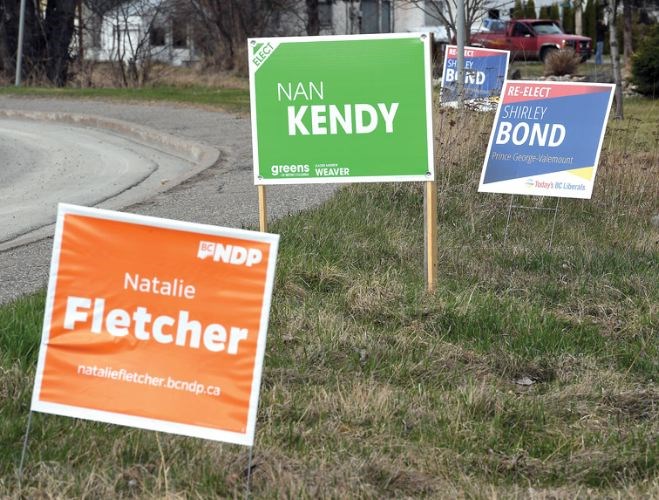University of Northern British Columbia will see an influx of new seats for undergraduate engineering students if the B.C. Liberals are re-elected, incumbent MLAs Mike Morris and Shirley Bond said Monday.
They said 70 seats will be established at UNBC and a concurrent 25 seats in engineering technology will be put in place at College of New Caledonia with a "ladder" to UNBC for those who want to progress further.
The seats will be in civil and environmental engineering but further detail was not provided. Establishing a civil engineering program has long been called for by the city's business community.
At its main campus, UNBC is home to a bachelors in environmental engineering degree, a program run jointly with the University of British Columbia. Up of 40 students go to UBC for the third and fourth year, before they come back to UNBC for the final semester.
There were 122 registered in the program last fall - 52 in first year, 40 in second year, and 30 in fifth year. Up of 40 students go to UBC for the third and fourth year, before they come back to UNBC for the final semester.
UNBC also hosts a masters in integrated wood design at the Wood Innovation and Design Centre downtown.
The new seats will be part of the B.C. Liberals' plan to added 1,000 new science, technology, engineering and math graduates to the province by 2022.
Morris and Bond issued the promise at the IDL Projects office in the BCR industrial site.
"By creating these programs at UNBC and CNC, we're going to train people in the north for the north so that companies like IDL and other companies in B.C. can prosper and thrive here in Prince George," Morris said.
Bond said it's indicative of a B.C. Liberal party that's "going to get to 'yes.'"
"We say yes to resource development in a sustainable and responsible way," Bond said. "But one of the things that is of biggest concern is that we have the skilled people necessary to be able to deliver on those projects."
Local NDP and Green candidates generally welcomed the commitment but also raised concerns about apparent shortcomings in the B.C. Liberals platforms for post-secondary education.
"I'm glad that Christy Clark has agreed with us that we have lagged behind other jurisdictions in investments in science and technology but adding new seats doesn't help if students can't afford to go to school," Bobby Deepak, the NDP's candidate in Prince George-Mackzenzie, said.
Both Deepak and Natalie Fletcher, the party's candidate in Prince George-Valemount, noted the NDP will eliminate interest on post-secondary education and provide a $1,000 grant to students who complete their programs. They also said the NDP will pour $100 million into expand technology-related post-secondary programs and establish a $50-million new graduate scholarship fund.
Similarly, Nan Kendy, the Green party candidate in Prince George-Valemount, said her party would put $120 million over over four years into partnerships with industry, academic institutions and government to support research, commercialization and development of climate-friendly technologies.
Kendy, who was a sessional instructor in the school of education at UNBC, said the school faces a tight timeline to get what will be a four-year program off the ground if the aim is to produce graduates by 2022.
Prince George-Mackenzie Green party candidate Hilary Crowley said she hopes MLAs will announce a new physiotherapy program at UNBC and a concurrent rehabilitation assistance program at CNC before the general voting day next Tuesday.
"I'm wondering if we're missing this piece because we don't have a corporate donor," Crowley said in reference to the level of campaign contributions the B.C. Liberals have received from B.C. businesses.
IDL Projects president Todd Patterson said northern B.C. companies like his have struggled with a shortage of qualified engineers in the region.
"It's really tough to attract engineers and civil techs to the north so having our own program is going to make a difference in that regard," Patterson said. "It's going to help us provide the technical people that we need to complete the projects that are in the north."
UNBC interim academic vice president and provost Dan Ryan some steps still need to be taken before the seats are ready for students.
"Right now we have the program developed, so we're ready to go on that aspect but we got to (work out) funding and tuition and connect it with our academic program and make sure we've got everything we need," Ryan said.



